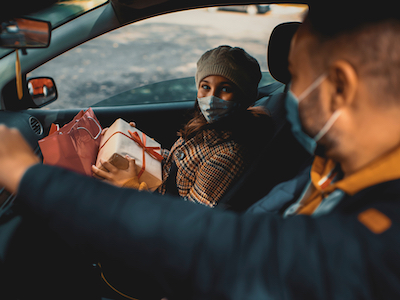 Covid-19 guidance
Covid-19 guidance
Bringing children up within a separated family is never easy. The added dimension of Covid-19 creates even more uncertainty leading to inevitable questions: what rules now apply in seeing your children; can they travel between homes and is it really possible to co-parent with your ex-partner?
On 24th March, The President of the Family Division, Sir Andrew McFarlane, issued fresh guidance to provide some certainty on contact arrangements for separated families: in essence, children can move between homes where it is safe to do so, having consideration for the current Public Health rules/guidance. McFarlane’s guidance states: “Where parents do not live in the same household, children under 18 can be moved between their parents’ homes.”
This established an exception to the government’s ‘Stay at Home’ requirement; it does not, however, mean that children must be moved between parental homes. The decision of whether a child is to move is for that child’s parents to make after sensibly assessing the circumstances, including the child’s present health, the risk of infection and the presence of any recognised vulnerable individuals in either household.
In practice, this means that you should continue to comply with a Child Arrangements Order (CAO), if you have one, so long as no one in either family unit shows signs of having contracted Covid-19. Where Covid-19 restrictions cause the letter of a court order to be varied, the spirit of the order should nevertheless be delivered by making safe alternative arrangements for the child.
Since the Stay at Home Rules were superseded in May by the more nuanced “Stay Alert” message, there is now much greater freedom to leave the house for work or some leisure activities, although the accompanying Public Health advice remains largely unchanged in terms of social distancing.
Sir Andrew McFarlane’s guidance therefore remains valid: children can move between homes where it is safe to do so, having consideration for the latest Public Health rules/guidance. The decision of whether or not a child can move rests with that child’s parents, having sensible regard to the circumstances, including the child’s health, the risk of infection and whether any recognised vulnerable individuals live in either household.
Practical considerations
The guidance states that parental responsibility lies with the parents, not the court. Parents are encouraged to speak, raise concerns and listen to each other, and find a way together to establish a solution that works for everyone.
Some families, by virtue of the litigation they are involved in, are unable to agree on what their children should eat for dinner let alone what is best for them during a national crisis. Inevitably, problems may arise where there is existing parental conflict.
If you have tried to communicate with the other parent but cannot agree a way forward, then ultimately, if you are sufficiently concerned that for the child to move would be against the current Public Health advice, you can exercise your parental responsibility and vary any arrangement to one that you consider safe. Any such deviation from the agreed arrangements would need to be fully justifiable.
Child Arrangements Orders
When the CAO states that your child has to spend time with the other parent, if you have parental responsibility and you feel that Public Health advice requires you to vary the arrangement then you can. If your actions are subsequently challenged by the other parent and questioned by the court you must be able to show that you acted reasonably and sensibly in light of official advice and Stay at Home rules.
If there is no CAO and the other side is denying access, the guidance remains that wherever possible you should try to discuss matters with the other parent to see if you can find a way forward safely and positively. Should you be prevented from seeing your child for a period of time and you feel this is unjustified, you may consider making a Child Arrangements Application to the court to regulate the time.
Negotiating change
Put yourself in the other parent’s shoes. Even if it is right for the safety of the family and the general public it is still hard for any parent to be separated from their child, no matter what the circumstances.
The guidelines state that if actual contact is stopped the other parent should consider other ways of ensuring the children are able to maintain a relationship with the other parent. So consider offering FaceTime, Skype, WhatsApp, Zoom or other video calling as a way for them to continue to interact. You may consider offering some additional time at a later date, or stopping short contact sessions and replacing them with video calls to minimise the amount of travel and exposure for the child and others within their life.
If one parent prevents contact, the other parent may apply to the court to enforce the order. The judge will have to decide if the decision was reasonable in all the circumstances. Most family court hearings are happening remotely however a swift decision is unlikely. As with so many other issues, there is no right or simple solution. It is about what works for your family, ensuring the safety of everyone.
This is an extremely difficult time for everyone. It is important to realise that you are not alone. The paramount concern for both parties must be the safety and welfare of the child and those around them.
 About the authors
About the authors
Lindsay Yateman and Naomi Lelliott are specialist divorce and family lawyers at Excello Law.








